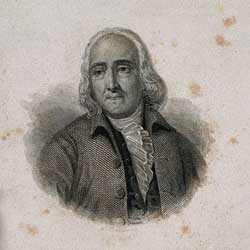 Jeremy Bentham, a name that echoes through the annals of philosophy, a beacon of utilitarian thought, a man whose life and work have left an indelible mark on the world. Born in 1748, in the bustling borough of Spitalfields, London, he was a child prodigy, a wunderkind, a boy who read multi-volume histories of England whilst still in his swaddling clothes, a lad who began his study of Latin at the tender age of three. His father, a prosperous attorney, had dreams of his son ascending to the lofty heights of Lord Chancellor. But Bentham, ever the maverick, had other plans.
Jeremy Bentham, a name that echoes through the annals of philosophy, a beacon of utilitarian thought, a man whose life and work have left an indelible mark on the world. Born in 1748, in the bustling borough of Spitalfields, London, he was a child prodigy, a wunderkind, a boy who read multi-volume histories of England whilst still in his swaddling clothes, a lad who began his study of Latin at the tender age of three. His father, a prosperous attorney, had dreams of his son ascending to the lofty heights of Lord Chancellor. But Bentham, ever the maverick, had other plans.
Disillusioned with the law after hearing the lectures of Sir William Blackstone, Bentham chose not to practice it but to write about it, to critique it, to suggest ways for its improvement. His father's death in 1792 left him financially independent, and for nearly forty years he lived quietly in Westminster, producing between ten and twenty sheets of manuscript a day, even when he was in his eighties. His manuscripts, many thousands of them, still exist to this day, a testament to his prodigious output.
First among best works, we encounter his magnum opus, his pièce de résistance, 'An Introduction to the Principles of Morals and Legislation'. A work of profound insight, a work of unyielding scrutiny, a work that delves into the very heart of human nature, of human morality, of human law. Bentham, with the precision of a surgeon, with the acuity of a scholar, dissects the principles of utility and of pleasure and pain. He presents us with a vision of a world governed by these principles, a world where laws are crafted not for the benefit of the few, but for the happiness of the many.
Then, we find ourselves in the corridors of 'Panopticon', a work that explores the architecture of power, the architecture of control, the architecture of surveillance. Bentham, ever the social reformer, ever the visionary, proposes a new type of prison, a prison where all inmates can be observed by a single watchman, a prison that serves as a metaphor for the society he envisions, a society where transparency and accountability reign supreme.
Lastly of great renown, we come upon 'Of Laws in General', a work that delves into the intricacies of legal theory, of legal philosophy, of legal jurisprudence. Bentham, with the tenacity of a detective, with the patience of a monk, unravels the complexities of law, of duty, of rights. He challenges established doctrines, he questions entrenched beliefs, he advocates for a system of law that is rooted in utility, in happiness, in the greatest good for the greatest number.
Bentham is synonymous with the doctrine of Utilitarianism, the principle of 'the greatest happiness of the greatest number'. This was his starting point for a radical critique of society, a critique that aimed to test the usefulness of existing institutions, practices, and beliefs against an objective evaluative standard. He was an outspoken advocate of law reform, a critic of established political doctrines like natural law and original contract theory, and the first to produce a utilitarian justification for democracy. His ideas were as diverse as they were revolutionary, touching on subjects as varied as prison reform, religion, poor relief, international law, and animal welfare.
His critics, of course, were many. They accused him of reducing human experience to mere calculations of pleasure and pain, of ignoring the complexities and nuances of human life. But Bentham was not deterred. He argued that his principle of utility provided a clear and objective standard for evaluating actions and policies, a standard that could guide us towards a more just and equitable society. His critics also accused him of advocating for a form of government that would be overly intrusive and controlling. But Bentham countered that his vision of government was one that would protect the rights and freedoms of individuals, not infringe upon them.
We might say that Bentham was a man of 'ineluctable modality', a man whose ideas were as 'real as the sun, the sea, and the sky'. His life and work were a 'portrait of the philosopher as a young man', a portrait that continues to inspire and challenge us to this day. His critics may have seen him as a 'usurper', a 'usurper of the old order', but Bentham saw himself as a 'champion of the new', a champion of a world where the greatest happiness of the greatest number would be the guiding principle.
In the end, Bentham's life and work are a testament to the power of ideas, to the power of a single individual to change the world. He may have been a man of his time, but his ideas are timeless, his legacy enduring. As we navigate the complexities of our own time, we would do well to remember Bentham's principle of utility, his commitment to the greatest happiness of the greatest number. For in a world that is often marked by inequality and injustice, Bentham's ideas offer a beacon of hope, a vision of a more just and equitable society. And that, surely, is something worth striving for.






